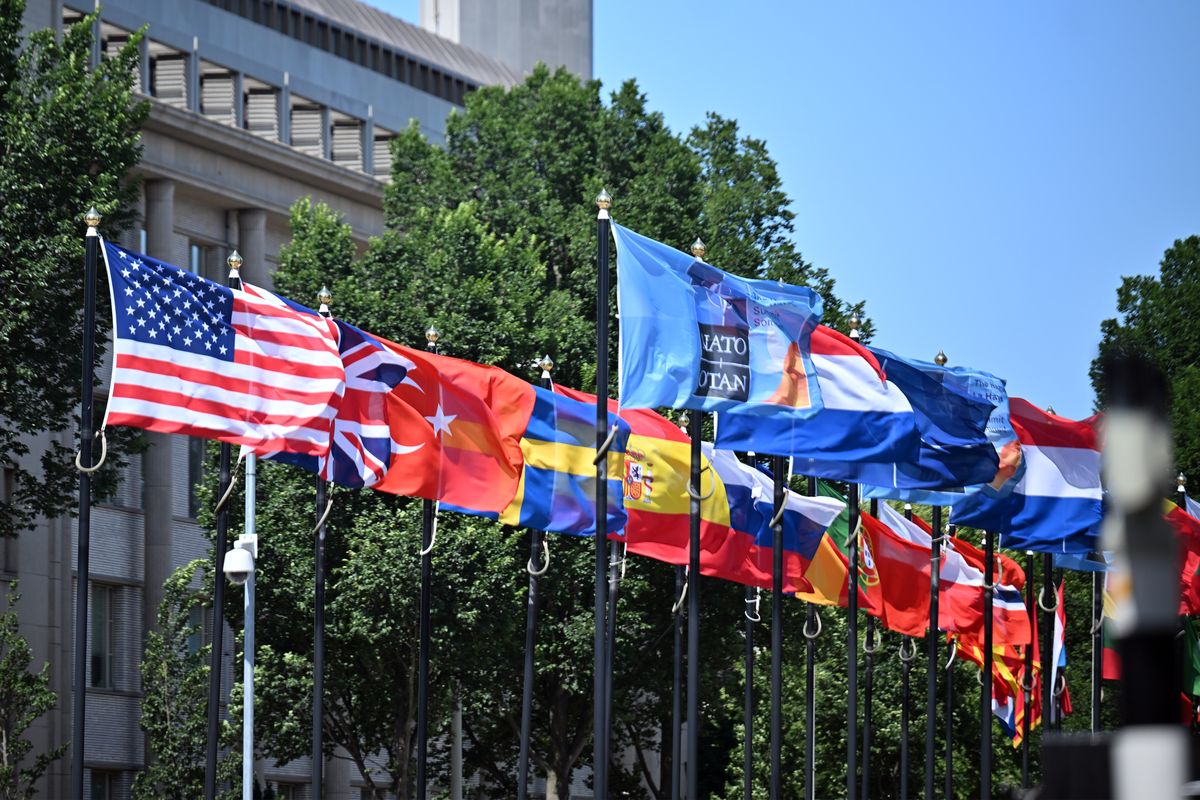The future of the transatlantic defense alliance is in jeopardy, according to news reports from the past few months.
It all started with then-candidate Donald Trump’s comments in March about NATO being “obsolete.” Then, in July, Trump seemed to throw into question Article 5 of the NATO treaty – the collective defense provision that says an attack on one is an attack on all – by saying the U.S. will protect its European NATO allies “if they fulfill their obligations to us,” meaning if they meet NATO’s 2 percent of GDP on defense spending goal.
Just this week, The Times published an interview with President-elect Trump in which he reiterated the notion that NATO is “obsolete” and reaffirmed the demand for NATO members to pay their fair share.
German Foreign Minister Frank-Walter Steinmeier said Monday that Trump’s NATO comments raised concern across the 28-member alliance.
However, there is a different way to interpret all of Trump’s rhetoric.
In the same interview with The Times, Trump said, “I said a long time ago – that NATO had problems. … It’s obsolete because it wasn’t taking care of terror [but] they have a whole division devoted now to terror, which is good.” Indeed, after taking much criticism for its lack of capabilities to fight terror, NATO is creating a new intelligence post to improve information-sharing on terrorism and other threats.
Meanwhile, Lithuanian Ambassador to the U.S. Rolandas Kriščiūnas calls Trump’s comments on NATO members contributing more money to the alliance a positive development.
“If everyone contributes 2 percent, it will make NATO stronger, not weaker,” he told The Cipher Brief, adding, “We never doubted the commitment of any of the NATO members, including the U.S.”
Poland’s former Defense Attaché in Washington, who served from 2013 until last year, Brigadier General Jarosław Stróżyk was a little less optimistic, telling The Cipher Brief that Trump’s “mixed messages about NATO” stir anxiety, but noting that he is confident the President-elect will more concretely address European burden-sharing “as soon as possible.”
Moreover, other expected members of the new administration have made their commitment to NATO clear.
Secretary of Defense nominee James Mattis told his Senate confirmation hearing, “NATO … from my perspective, having served once as a NATO Supreme Allied Commander, is the most successful military alliance, probably in modern world history, maybe ever. … And so I would see us maintain the strongest possible relationship with NATO.”
The importance of alliances was echoed at the hearing of Trump’s pick for Secretary of State, Rex Tillerson, who voiced his concerns with Russia, a top threat for many NATO members and especially those on Europe’s eastern flank.
“Our NATO allies are right to be alarmed at resurgent Russia,” he said, “But it was in the absence of American leadership that this door was left open and unintended signals were sent. We backtracked on commitments we made to allies, we sent weak or mixed signals with red lines that turned into green lights. We did not recognize that Russia did not – does not think like we do.”
In The Times interview, Trump was also asked about Russia, specifically if he can understand why Eastern Europeans fear Russian President Vladimir Putin and the country he leads. Trump said yes and, at the end, added “NATO is very important to me.”
Admiral James Stavridis, NATO’s Supreme Allied Commander from 2009 until 2013 and now Dean of The Fletcher School at Tufts University, confirmed this sentiment, telling The Cipher Brief, “Since the campaign, I have spoken personally to President-elect Trump about NATO, and I feel confident that he will accept NATO as a strong and vibrant partner … my sense from my conversation with him is that he understands the value of NATO.”
It is unlikely that the United States, in the coming months and years, will withdraw or fail to uphold its commitments to the alliance, NATO will be disembodied, and transatlantic defense will be abandoned. It is likely, though, that the face of NATO will change – it will be less U.S.-centric, with European allies taking on more responsibility for their own defense, and more focused on 21st century threats, such as terrorism and cyber attacks.
The NATO Cooperative Cyber Defence Centre of Excellence (CCDCOE) in Tallinn, Estonia, has been working since 2008 to develop NATO’s cyber capabilities. The Tallinn Manual 2.0 – the leading international lawbook on cyber warfare – should be ready for use this year.
Kaitlin Lavinder is a reporter at The Cipher Brief. Follow her on Twitter @KaitLavinder.













